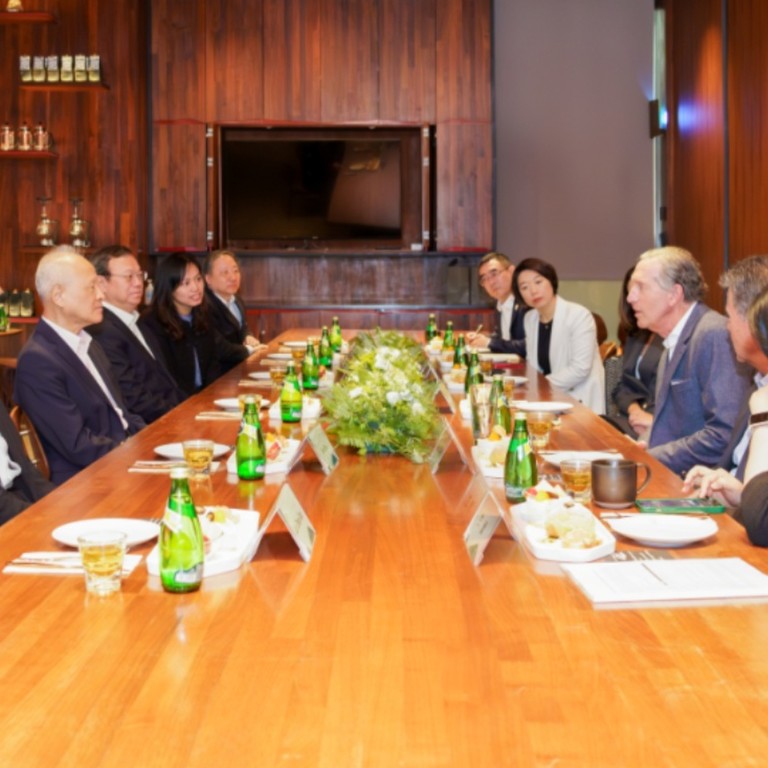
Can Starbucks coffee improve China-US ties? Cui Tiankai urges Howard Schultz to try
- In talks in Shanghai, former ambassador Cui says the company can contribute to understanding between the two countries
- Shanghai Communist Party chief Chen Jining also says the coffee chain can encourage more American young people to come to China
“We encourage Starbucks to make more contributions to promoting mutual understanding between China and the United States and their peoples,” Cui said, adding that China offered a “vast market” to the chain.
Cui stressed that promoting people-to-people exchanges between the two countries was crucial to the healthy, stable and sustainable development of bilateral ties.
Schultz said the two countries had “more commonalities than differences”, and that China’s achievements in socioeconomic development and in improving its people’s livelihoods were “heartening”.
He and Cui met previously during Cui’s eight-year stint in the United States, which ended in 2021.
Schultz’s trip comes less than a year after a meeting in Beijing with Vice-President Han Zheng, who echoed President Xi Jinping’s hope that the company would “play a positive role in advancing [bilateral ties]”.
Caffeine boost: China’s rising coffee demand spurs cutthroat cafe competition
Schultz also met Shanghai Communist Party chief Chen Jining on Friday, with Chen also urging the company to be “a bridge” between the two countries and encourage more American young people to come to China to learn, network and “create conditions” for cooperation.
Schultz said: “We are willing to give full play to our own advantages and contribute more to promoting economic and trade cooperation and people-to-people exchanges between the US and China.”
According to Shanghai-based news outlet The Paper, he also said that the more he understood about the city, “the more confident and determined I am in deepening investments and expanding strategies in Shanghai”.
China is the biggest market for the coffee giant outside the United States, with more than 7,000 Starbucks stores across 800 Chinese cities by the end of last year. Starbucks plans to increase this number to 9,000 units by 2025.
Schultz said Shanghai had more Starbucks stores than any other city in the world.
But it is facing pressure in other parts of the world, particularly in Muslim-majority countries, over its decision to distance itself from the pro-Palestinian Starbucks Workers United union. Starbucks’ Middle East franchisee, Alshaya Group, has reportedly laid off more than 2,000 workers relating to the consumer boycotts.
In December, Starbucks said it condemned “violence, the loss of innocent life and all hate and weaponised speech” and had “no political agenda”.
McDonald’s Malaysia drops lawsuit against pro-Palestinian boycott group
Cook met Commerce Minister Wang Wentao, saying China was “an important market” and “key supply chain partner” for Apple.
“Apple will continue to be committed to long-term development in China and continue to increase investment in China’s supply chain, research and development and sales,” the ministry quoted Cook as saying.
Wang said the business community was “generally opposed” to decoupling, adding that China was willing to work with the US to “create a fair, stable and predictable environment for business cooperation between the two countries”.
The forum was launched in 2000 and aims to bring international corporate chiefs and organisations, as well as academics, together for direct dialogue with Beijing.
China is trying to reassure foreign investors that it is a profitable place to do business.
According to the Ministry of Commerce, foreign direct investment in China stood at 215.09 billion yuan (US$29.75 billion) in the first two months of this year, down almost 20 per cent year on year.

